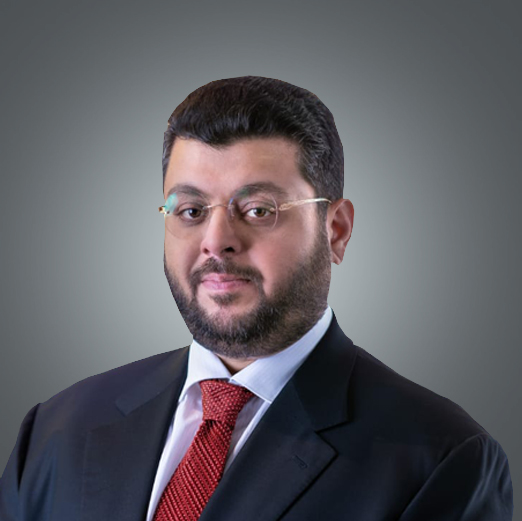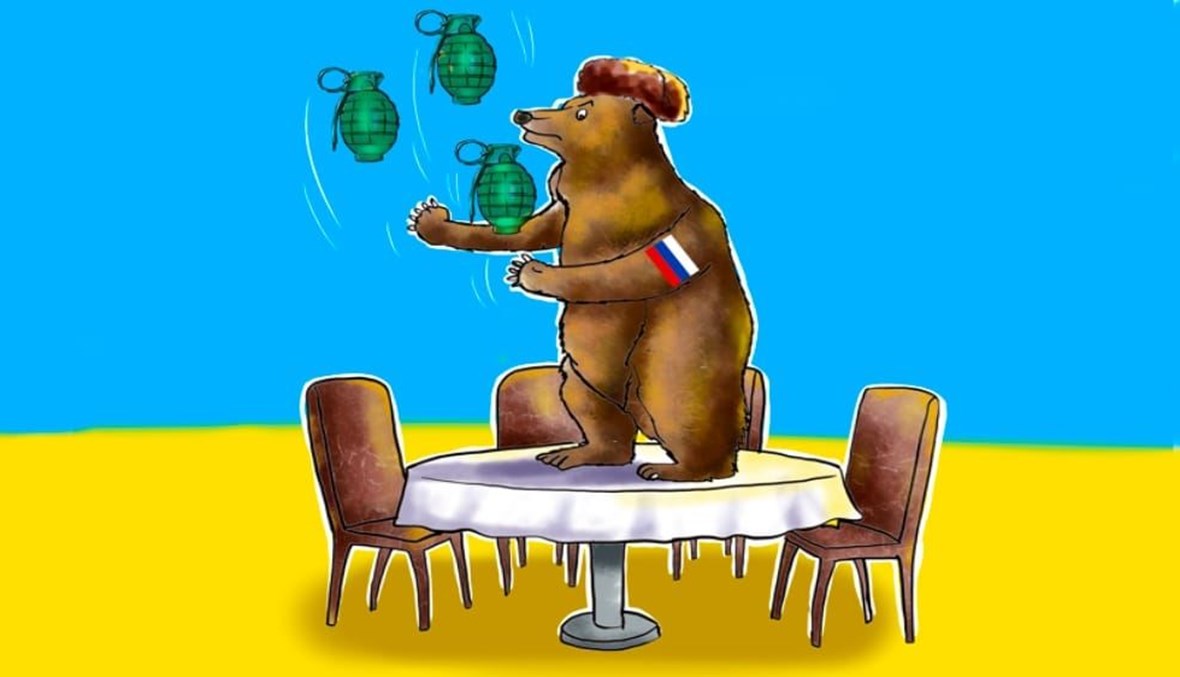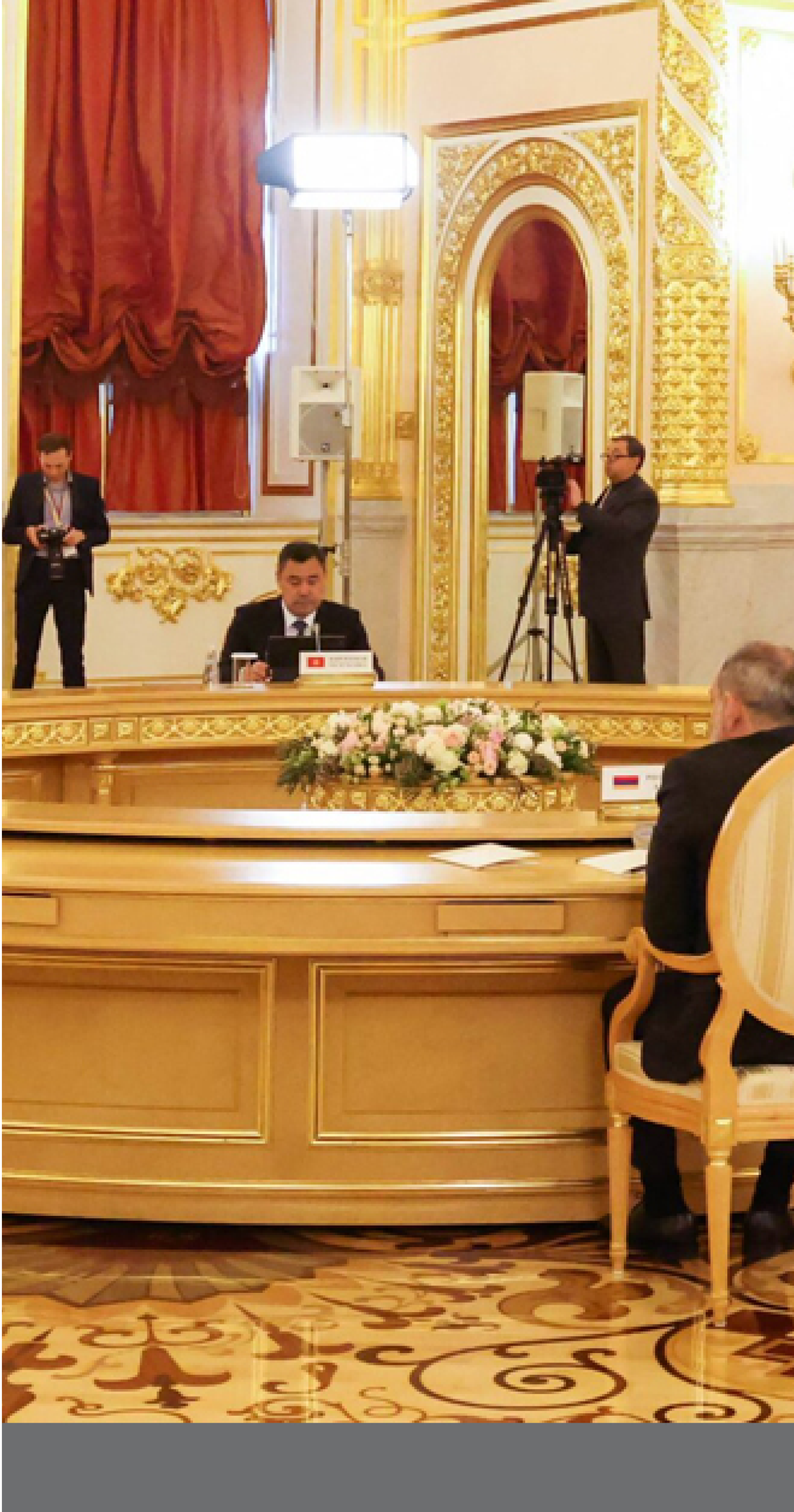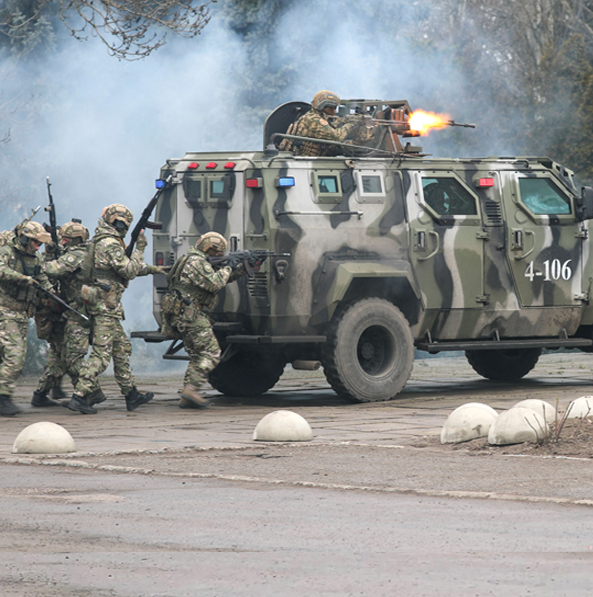In a scene that appears as if it entirely taken out from the Cold War, Russia is amassing as many as 130,000 troops on its borders with Ukraine, through which Russian President Vladimir Putin continues to threaten to invade Ukraine, without formally authorizing it: a military action, if it takes place, could turn into the biggest conflict on European soil in decades.
Russia's actions also included moving some troops to neighboring Belarus for military exercises, and sending more equipment to separatists in eastern Ukraine, According to Defense Intelligence of Ukraine, which stated that Russia had sent "7,000 tons of fuel, several tanks and self-propelled artillery systems, other weapons and ammunition, including artillery systems and mortars to the separatist regions." Samuel Charap, a senior political scientist at the Rand Corporation and a former US State Department official, indicated that “It's a process fundamentally different from anything we've seen before."
How things got this level of escalation?
Ukraine was a part of the Russian Empire for several centuries back, and it became later part of the Soviet Union. Russia had previously fought a fierce war against the Ottoman Empire over the Crimea (Russian-speaking that was considered Ukrainian in 1954 by Soviet leader Nikita Khrushchev).
In return for a verbal pledge from Europe that NATO would not expand eastward toward the borders of the Soviet Union, Gorbachev agreed, during the perestroika and negotiations with the European leaders, to tear down the Berlin Wall, and all that it symbolizes. Then, after the collapse of the Union, Ukraine became an independent State, yet, Putin's sights have been on it since he took over the presidency of Russia.
In the end of 2013, the Ukrainian leader — a friend of Moscow — Viktor Yanukovych canceled plans to sign an agreement that would bring the country closer to the European Union, after Putin proposed a customs union with Russia, Belarus, and Kazakhstan instead. The move sparked protests and civil unrest in Kiev, the Ukrainian capital, which ended with the president's flight, much to Russia's anger.
Putin first used the power vacuum to annex Crimea, in a procedure that the Kremlin claimed was based on a referendum held on the peninsula in favor of a return to Russia: a referendum that Westerners described as “illegal and illegitimate.” And an annexation denounced by the United Nations General Assembly, and considered it illegal.
Second, Putin supported the separatists in the southeastern provinces of Ukraine, Donetsk and Luhansk, known as Donbass, in declaring them autonomous republics. Then Russia and Ukraine signed agreements in Minsk (the capital of Belarus) in 2014 and 2015 aimed at a ceasefire in the Donbass, where the conflict has killed more than 14,000 people and displaced millions. Despite this, the ceasefire continued to be violated as the conflict turned into something like trench warfare.
In 2019, there was a renewed hope for progress, as Russia and Ukraine exchanged prisoners, and in 2020 Ukrainian President Volodymyr Zelensky said there was: "a high chance of ending war ", but clashes continued. In the spring of 2021, Russia began massing tens of thousands of its forces near Ukraine in response to what it described as threats from NATO.
Today, Putin who the number of his supporters had declined at the internal front, as Russians are resisting vaccination and denouncing the economic difficulties that have exacerbated in light of the Covid-19 epidemic, recalls the support he gained internally when he annexed the Crimea. Will a new war or a new escalation distract the Russians from the problems in the Interior and boost Putin's popularity again? In addition, the Russian president wants to restore dialogue with the West, especially the United States, even if under duress, and I believe he has succeeded in that through the gates of Ukraine.
What else Putin wants?
Putin is contemplating his future legacy. He believes that he can still restore Russia as a global superpower with its strategic depth, and that is why he does not seem willing to allow Ukraine or Kazakhstan to move away from the Russian orbit.
On December 17 last year, Russia published draft agreements on ensuring the country's security, or what could be called “demands.” Those drafts included what Putin did not want, so to speak, as they demanded NATO to refuse membership of Ukraine and other former Soviet states and to retreat from the deployment of troops and weapons in Central and Eastern Europe.
They also demanded a ban on sending American and Russian ships and warplanes to areas from which they could attack each other's territories, as well as stopping NATO military exercises near Russia's borders.
Western countries do not desire to provoke Russia, in a way similar to what the latter did to its relations with Fidel Castro in the middle of the last century. Otherwise, Ukraine would have joined NATO years ago, and become protected by its mutual defense treaties, which obligate the Atlantic countries to defend it against any external aggression. Yet, this does not mean that the West will formally comply with Putin's wishes. From this standpoint, the United States described Moscow's demands as unacceptable, and NATO Secretary-General Jens Stoltenberg refused to cancel the 2008 commitment to Ukraine and stressed that:" when the time comes, Russia will not be able to object Ukraine's accession to NATO."
These responses disappointed the Russians and did not meet their minimum requirements. Moscow's response was to mobilize more military forces on the Ukrainian borders, whether in Belarus or Russia.
Last week, sources indicated that President Biden was considering deploying several thousand US troops, as well as warships and aircraft, to NATO allies in the Baltic States and Eastern Europe. This is a move that indicates a shift by the Biden administration from its previous efforts to avoid provoking Russia. But with Russian President Vladimir Putin intensifying his threats, and talks between US and Russian officials failing to defuse the crisis, the US president's administration appeared to have changed course, content with "loose" threats such as that if Russia invaded Ukraine it would "It will pay a heavy price, be in great isolation, or Washington may impose significant sanctions that could affect Putin personally and his comrades in the Russian leadership."
Does Russia fear sanctions?
I think that it is still early to talk about sanctions, and they are only a matter of threat and pressure to know Moscow's reaction. Despite that, do these sanctions affect Russia, and to what extent?
In the last meeting between the Russian and Chinese presidents, Russia and China signed the so-called "no limits" agreement or "no forbidden areas of cooperation." A new world order against America that claims to rule the world. I am almost certain that the identical "red" neckties, which Presidents Putin and Xi Jinping wore during the signing, were never a coincidence. Rather, they bear symbolism in terms of color and positions as well. Mutual support will become clear in the next stage. China supports Russia in Ukraine in exchange for Russian support for China in the restoration of Taiwan. So, Biden's sanctions do not frighten Putin much after the alliance with China.
Add to this Russia's relations with several eastern countries, led by Iran, which, whether or not it signs the nuclear agreement with the West, will remain Russia's ally. In addition to the agreements signed between Russia and Soviet Central Asia States.
This does not mean that sanctions do not affect Russia, but it can be said that Russia is afraid of the logic of sanctions, but it does not think about it, even if it is harmed to some degree if it happened!!
But then again this also does not mean that Russia will go to war.
In an article published by Foreign Policy “Why the Chess Metaphor for Putin Is Wrong” Daniel B. Baer noted that "Putin he has no choice but to carry war out. The United States and its allies should continue to be sober and stand firm on his actions’ consequences, offer him off-ramps, and eschew any gratuitous triumphalism if he decides to take one." I absolutely do not agree with Mr. Baer on this view, nor do I agree with those who think that Putin put himself in a dilemma and confined himself to a corner, that is: either he invades Ukraine and falls under the sanctions guillotine and aggravates the economic crisis that Russia is experiencing today, or he will lose the personality of the tsar who does not retreat in his decisions.
The first possibility is excluded as Russia will not engage in a war with guaranteed results. And as long as it can achieve through blackmail a number of its goals, especially since the option of war does not carry losses for Russia, since America does not want war with Russia either, as it is not bound by an agreement with Ukraine to defend it, in addition to, the fact that the West realizes that war with Russia is a “massive gamble,” as the latter has the full ability to expand in Eastern Europe, and thus destabilize the entire European region, which may expose the world to entering into a third world war in the eastern part from which the First and Second World Wars began. At the same time, I think that the second possibility is also excluded because Putin is keen not to expose his person to such a strong shock that will result from his abandonment or retraction of the firm and decisive decisions, as he sees himself free and not in a bottleneck!
So, if neither of these possibilities exists, then what is the expected scenario for the current Russian-Ukrainian crisis? And how could the solution be?
Russia is aware of the economic burdens resulting from the escalation it is pursuing, and the great costs imposed by its military buildup. However, in the balance of profit and loss: the cost to Russia may be much lower compared to the expected threats to Eastern European security, and the longer the crisis, the greater are the burdens that Europe and America will incur. Some of these burdens are economic, for example, transporting soldiers and military equipment to Ukraine, and others are humanitarian like the state of panic, anxiety and psychological pressure that Europeans, in general, and the Ukrainian people, in particular will experience. In light of the media’s continued broadcast of news that war is imminent, this news that makes the Ukrainian economy on the verge of the collapse, and Ukrainian President Zelensky is well aware of the dangers of such an exacerbation of the crisis, or its mere continuation.
Also, we must remember the level of pressure that Russia can exert on Europe with gas, as the "Stream 2" pipeline can play the biggest role in punishing Europe if Russia decides to stop it, because Europe will then taste the cold that cannot be confronted.
At the same time, Putin benefits greatly in dealing with this crisis from Biden's weakness and confusion in its management. The agreement that the latter signed with the Emir of Qatar to supply gas to Europe, if Russia stops its exports, does not meet the need first, and the gas needs a lot of time to reach Europe via tankers.
On a parallel level, Russia is benefiting from the presence of Democrats in power today. Putin nibbled the Crimea in the Obama era and is waiting for the opportunity to solve the Donbas problem or remove NATO from Russia's borders during the Biden era through pressure and blackmail. The Russians realize that most members of the Democratic Party are writers, lawyers, literature and the press, and even businessmen among them, who are in general the owners of service companies or specialized in artificial intelligence technology, mobile devices, software and etc..., and they are always against wars, their main concern is to defend human rights and the values of freedom, unlike the Republican Party, whose men own huge factories of military technology, armaments, aircraft, etc. Therefore, the republicans do not care about creating problems to wage war and to extract money.
The idea of the weakness of the Democratic Party, its desire for political solutions and refusal of war to resolve conflicts is well understood by the Russian and Chinese minds. Hence, Putin will take advantage of Biden's weakness, the inflation that America is suffering from, and the Corona crisis that has hit American society hard, to implement Russia's plans in Ukraine.
Hence, the events of the current crisis will develop into two scenarios, namely:
The first scenario (possibly optimistic!): Sitting at the negotiating table to sign agreements aimed at ending the crisis in Ukraine, and perhaps others in other regions of the world, in which Russia and America are competing - and I rule out that the Syrian issue is among them, and Russia's position on China and Iran will be determined on the list of enemies of America.
Perhaps in these negotiations, it will be agreed that NATO pledges not to approach the Russian borders for a certain geographical distance that has its own arrangements (latitude and longitude..) so that Russia can protect its national security, in exchange for security arrangements in the Donbas region and all Ukrainian lands, and the withdrawal of Russian forces From the Ukrainian borders to a distance to be agreed upon as well, and to reduce tension and escalation from the Russian and Ukrainian sides. I do not rule out that Russia will provide some economic incentives to Ukraine in this case.
The second scenario: is to maintain the state of tension in Ukraine and Europe with more Russian pressure and military buildup abroad, and Russia may push towards more escalation by officially deploying its forces in Donbas, and perhaps seizing parts of the Donetsk and Luhansk regions, in a first step that measures the During which Moscow reacted to the West before moving forward.
Russia may also escalate the escalation by using limited but decisive military strikes, as it did with Georgia in 2008. Of course, Moscow may resort to moving agents operating inside Ukraine, perhaps to overthrow the regime there. This is not an unlikely option. Russia - like America - has a history of internal conspiracies and overthrowing regimes in the world.
This last approach related to Georgia will take us back to the not-so-distant history that can be considered the point of the return of the global rise of Russia, not in the era of Putin, who was ruling from behind the scene, but in the era of Medvedev, when America and the West committed the “great sin” from which the Russians will benefit greatly in the future , when the “honeymoon” between the two parties continued without any disturbances, especially after Russia overlooked America’s occupation of Iraq (perhaps it was only able to overlook and save that for the future), and this may have prompted the Republicans later not to condemn Russia for the invasion of Georgia in 2008. In fact, if the American administration had alerted its Republican and Democratic parties and agreed with Europe to take deterrent and decisive decisions and stances and sanctions against Russia, whose economy was growing and prospering at the time, Putin would have been very afraid of these sanctions and avoided them at all costs by reversing many of his positions, and thus he would not He would later dare to annex Crimea and threaten to occupy Donbas, then later intervene in Syria, which would allow him to impose himself, militarily and politically, in other international locations. And by relying on the very long breath in anticipation, negotiation, and even military action when necessary.
Thus, Putin is assured of his strength and the stability of his options. He is not in a hurry to find a solution, and he has all the patience, even if the wait is long, and if he is traditionally described as a "Russian bear" who waits for a long time to hunt his prey, he looks more like a cunning arctic fox that waits for the moment the mouse comes out. From under the snow and good at catching it!! Accordingly, Putin's strategy will revolve around his ability to maneuver over time. He is an old, seasoned politician, and himself in the struggle is long, and he is not afraid of complex crises, and he also has a long history of playing on the edge of the abyss, hence I do not agree with what Eliot A. Cohen wrote for The Atlantic that "Putin’s No Chess Master." Putin will continue to exert pressure on Ukraine and the West together, at times escalate and soothe at others, and he will always practice the policy of coercion until he is invited to negotiate and find a solution that satisfies him to the crisis.
Keep in touch
In-depth analyses delivered weekly.

Related Analyses:









